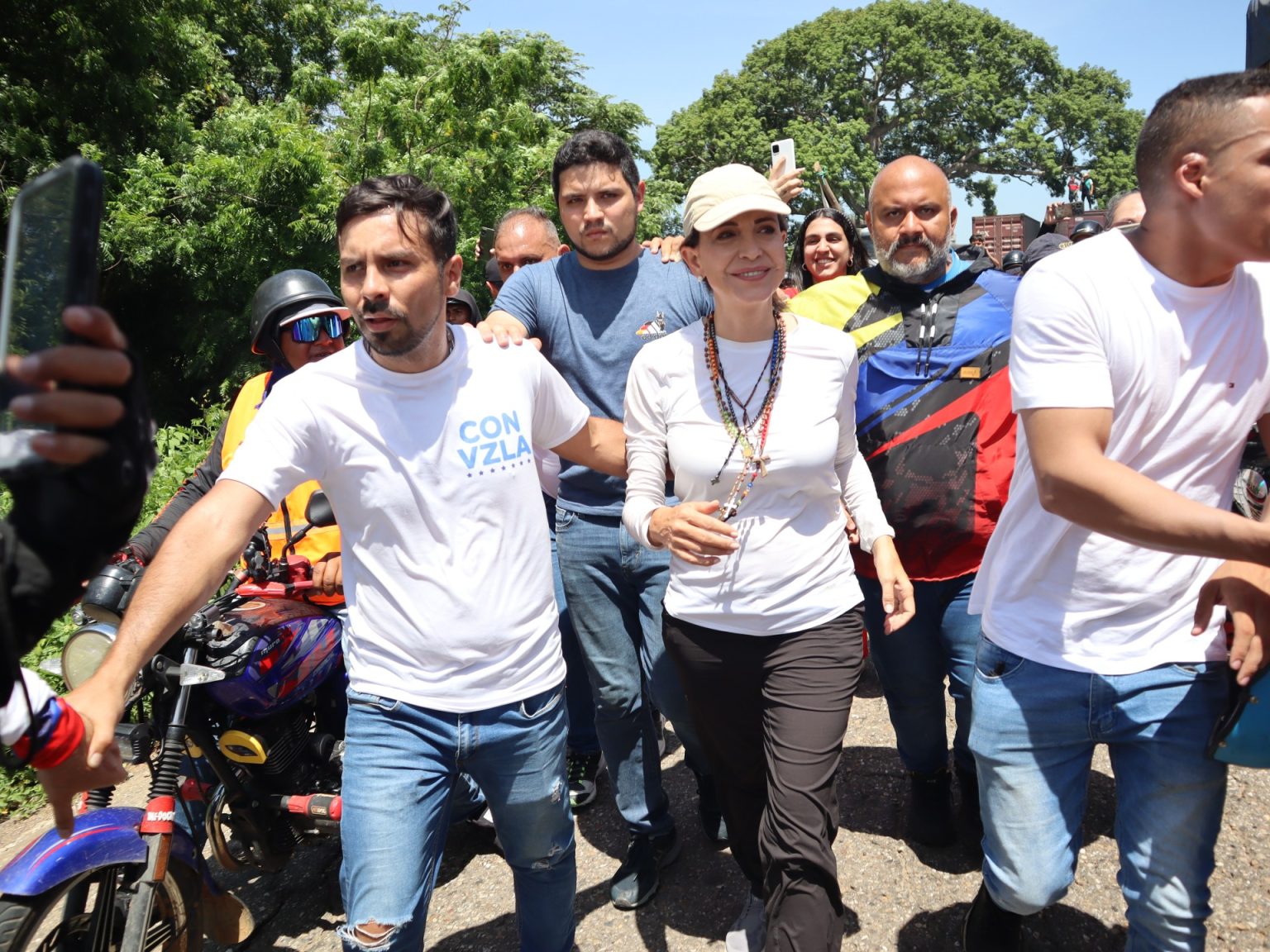Maria Corina Machado, a popular opposition leader in Venezuela, encountered significant obstacles on her journey to campaign on behalf of Edmundo Gonzalez Urrutia, the candidate challenging President Nicolas Maduro. Machado faced roadblocks, closed gas stations, and government attempts to deny accreditation to poll monitors. Despite these challenges, Machado remains determined to overcome the authoritarian tactics employed by the Maduro government, which is struggling to remain in power as elections approach.
Maduro, who has been in power since 2013, is trailing Gonzalez in the polls. An opposition victory could bring an end to nearly a quarter-century of socialist rule in Venezuela. However, Machado and other opposition leaders warn that Maduro will not relinquish power easily, and they anticipate continued sabotage of their efforts, potentially undermining the democratic process during the election.
Machado has faced personal challenges as well, having been barred from running for the presidency last October, despite winning the opposition primary with a significant majority. She has continued to rally voters in support of Gonzalez, facing harassment, arrests, and vandalism of campaign vehicles. Despite these obstacles, Machado has received unexpected support as Maduro’s popularity declines, including from former chavista motorcyclists who have switched sides to support the opposition.
The government’s crackdown on opposition figures extends beyond Machado, with critics accusing the Maduro government of targeting low-level political workers and small business owners associated with the opposition. The Venezuelan human rights organization Foro Penal has documented numerous politically motivated arbitrary detentions during the campaign season. Individuals like Aldo Roso Vargas, an activist from an opposition party, have been arrested on dubious charges in an attempt to intimidate those aligned with the opposition.
As the election approaches, Maduro has implied the possibility of increased violence if the opposition wins, sparking concerns about potential conflicts and civil unrest. International leaders have warned against anti-democratic measures, and observers predict heightened repression in the days ahead as the Maduro government seeks to maintain control. Questions have arisen about the integrity of the vote, with reports of voting center closures, renaming of centers to confuse voters, and biased ballot designs favoring Maduro.
Despite the challenges and uncertainties surrounding the election, opposition leaders and their supporters remain hopeful of delivering a decisive victory at the polls. The prospect of change keeps optimism alive among activists like Aldo Roso, who continues to face difficulties in prison as he awaits the outcome of the election. With tensions escalating and the future of Venezuela on the line, the events leading up to and following the election are poised to shape the country’s political landscape for the foreseeable future.


